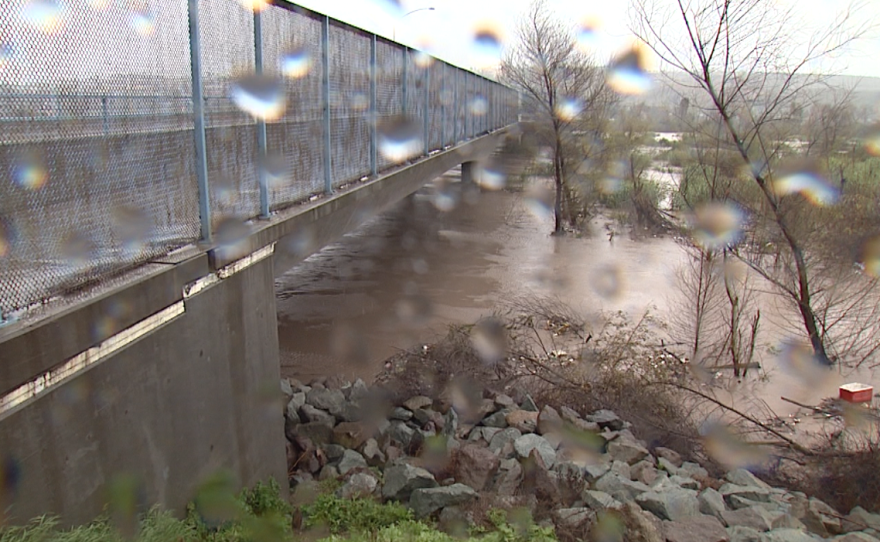Mexican officials say work on a sewage collector allowed treated sewage to flow into the Tijuana River for 17 days, but federal officials on this side of the border had no comment on the spill until it was declared over. The spill was finally confirmed late last week after the flow had been stopped.
Imperial Beach officials reached out to the U.S. International Boundary and Water Commission on Feb. 15 asking about a strong sewage smell and whether there was a cross-border spill in progress. They got no immediate reply.
IBWC officials said, the Tijuana River is dry for much of the year, but when it is wet it is common to have contaminated flows come across the border.
"The Tijuana River had been flowing across the border since Dec. 16 and the wet weather flow often contain bacterial contamination due to manhole cover overflows, broken pipes, sewage from un-sewered areas," said Lori Kuczmanski, IBWC spokeswoman.
A 143 million gallon spill that lasts two weeks is not common. U.S. officials said they asked Mexican counterparts at least three times if there was a spill. The first request for information came on Feb. 7. The U.S. got confirmation Feb. 23.
U.S. federal officials did not reach out to local municipalities until the spill was officially reported late last week.
"We report it to the California Regional Water Quality Control Board, the San Diego office, the city of Coronado, the city of Imperial Beach, the Environmental Protection Agency, WildCoast, Surfrider and the San Diego County Department of Environmental Health," Kuczmanski said.
Those notifications only came after the spill had stopped.
Imperial Beach officials inquired about the existence of a spill after enduring more than a week of pungent odors coming from the ocean. They did not hear back from the federal government until Feb. 23.
Imperial Beach Mayor Serge Dedina said the response was unacceptable.
"On Feb. 15 I sent an email to the International Boundary and Water Commission saying, 'Hey, we've got a problem here.' Not just Imperial Beach but Coronado and especially in south San Diego and near the Tijuana River. That was copied to the Mexican government, the consulate of Mexico here in San Diego," Dedina said.







